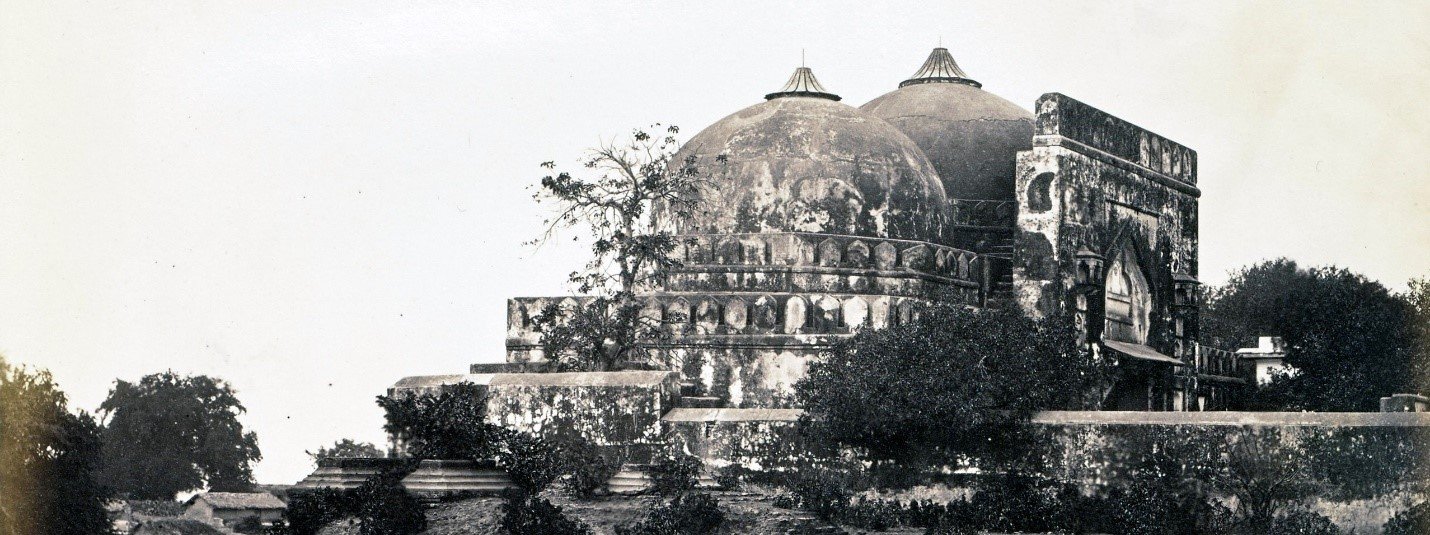It was business as usual in the pilgrim city on Tuesday, the day that marked the 30th anniversary of the Babri mosque demolition.
In a break from the curfew-like situation on some past occasions, life remained normal in the city with schools, colleges, offices, and public institutions remaining open. Police, however, remain on alert.
Like any other day, local people were seen queuing at the Ram temple complex for a ‘darshan’ while traffic remained heavy during morning rush hour.
The Vishwa Hindu Parishad (VHP) did not celebrate any “Shaurya Diwas” (bravery day) and there were no plans by the Muslim community to observe a Black Day.
With the Supreme Court judgment in 2019 ending the Ram Janmabhoomi land dispute, people from both communities appear to be yearning for peace.
In past years, Ayodhya used to be turned into a fortress ahead of the Babri mosque demolition anniversary. Not this time, though.
Senior Superintendent of Police, Ayodhya, Muniraj G said “routine arrangements” have been made in the city as precautionary measures.
“We are also continuously monitoring social media platforms, while hotels are also being checked,” Muniraj G, who was recently appointed as the SSP of Ayodhya, told reporters.
“All vehicles coming into Ayodhya are being thoroughly checked. Nothing unusual has been reported so far, however, we are keeping a strict vigil,” the SSP, who inspected the city markets on Monday night, said.
VHP spokesperson Sharad Sharma had earlier said events organised to mark 6 December were toned down after the Supreme Court decision “in favour of the Hindu side”.
“The ‘Shaurya Diwas’ which used to be celebrated on 6 December, it has been called off completely as our main ‘sankalp’ (vow) was fulfilled. And after that, all we wanted was a peaceful environment.
“So it was unanimously decided that no event that triggers any tension or hurts anyone should be organised”, he has said.
He said the organisation didn’t want to do anything that damages trust and communal harmony”.
Meanwhile, ‘mahant’ (priest) of the Hanuman Garhi temple in Ayodhya, Raju Das, said 2,100 earthen lamps made of cow dung were lit to mark the occasion, and tributes were also paid to ‘kar sevaks’ who were killed during the Ram Temple movement.
The priest, who is also the Chief of the Hindu Suraksha Seva Trust, said, “Had Ram Bhakts not razed the Babri mosque, the construction of Ram Temple would not have been possible. Today lakhs of people have prayed at Hanuman Garhi for prosperity and peace in the nation on the occasion of Shaurya Diwas.”
The lighting of diyas on 6 December was a norm till 2019 when the Supreme Court gave its verdict in the Ayodhya dispute, local people said.
“Before 2019, priests and locals also use to light diyas in large numbers every year on December 6 as part of shaurya divas celebrations. But this has discontinued in past few years,” Sanjay Srivastava, a local resident said.
Many local Muslims still feel that families of those killed in the aftermath of the Babri demolition are yet to get justice.
In two mosques of the city, recitation of the Quran was held after morning prayers on Tuesday.
Babri petitioner Haji Mehboob said, “We organised Quran Khani (recitation of Quran) in remembrance of those who lost their lives in Ayodhya after demolition of Babri Mosque. No other programmes have been planned.”
Another petitioner, Iqbal Ansari said, “After the Supreme Court judgment, Muslims have forgotten everything. Ayodhya is dharam ki nagri (City of Dharma)… we have left behind what happened 30 years ago and are now talking of development.”
Three decades after the demolition of the Babri mosque, people in the city seem to have moved on and appear to be treating its anniversary on Tuesday almost like any other day.


